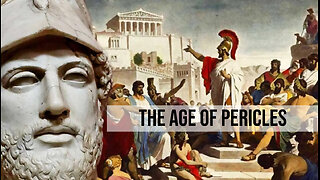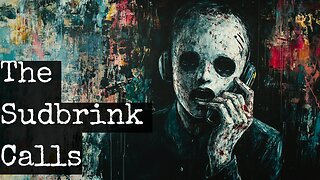Classics of Russian Literature | Fedor Mikhailovich Dostoevsky, 1821–1881 (Lecture 10)
Lecture 10: There is probably no writer since the Renaissance who has made a deeper impression on contemporary imagination and creativity than Dostoevsky, with the possible exception of his great contemporary, Tolstoy. (Let it only be said that it was Dostoevsky who forced the creator of this lecture series, at the age of 19, to learn the magnificent Russian language.) Dostoevsky was the son of a military Russian doctor in Moscow. He grew up in the city, and he did not partake of the great rural culture of Russia. Educated as an engineer but desperately in love with French and Russian literature, he wrote an epistolary novel, Poor Folk, in 1844, which he submitted to a prestigious journal. Its famous editor, Nekrasov, gave it to Belinsky (shades of Gogol’), who only grudgingly agreed to read the work of some nerdy engineer. Belinsky became totally engrossed in its artistry, swallowed the work whole, went to Dostoevsky’s apartment at 4:00 in the morning, embraced him, and declared the young man the future genius of Russia. Dostoevsky later wrote: “That was one of the rare moments in my life when I was truly happy.” The novel itself concerned not only the difficult life of Russian poor people but also many of the themes that Dostoevsky later elaborated.
Suggested Reading:
Fedor Dostoevsky, Poor Folk.
Konstantin Mochulsky, Dostoevsky: His Life and Work.
-
 30:30
30:30
The Great Courses
1 month agoThe Age of Pericles | Freedom, Equality, and the Rights of Man (Lecture 20)
56 -
 1:31:55
1:31:55
Kim Iversen
9 hours agoTHIRD Trump Assassination Attempt Thwarted?!? | Ballot Glitches, Voters Turned Away By Cops, What's Going On?!?
85.5K96 -
 1:26:31
1:26:31
Donald Trump Jr.
12 hours agoWe’re Just Days Away From Election Day & our MAGA Moment, Plus Interview with Sen Tom Cotton | TRIGGERED Ep.187
137K125 -
 2:37:52
2:37:52
Laura Loomer
8 hours agoEP88: LIVE COVERAGE: Trump Rally in Henderson, NV
64.6K21 -
 2:27:28
2:27:28
Slightly Offensive
8 hours ago $41.17 earnedJD Vance Did What?! BOMBSHELL Joe Rogan Interview EXPOSES ALL | Guest: Australian Talk
62K29 -
 51:08
51:08
Kimberly Guilfoyle
12 hours agoGarbage Politics: Dems Lose Control, Live with Sage Steele, Asm Bill Essayli & Karoline Leavitt | Ep. 170
104K36 -
 1:32:03
1:32:03
Glenn Greenwald
11 hours agoVoices For Gaza: Speaking Out Against Israel's Atrocities
73K51 -
 40:56
40:56
TheTapeLibrary
18 hours ago $6.27 earnedThe Disturbing Mystery of the Sudbrink Phone Calls
44.3K11 -
 47:58
47:58
Chrissy Clark
15 hours agoWashington Post Melt Down, RIGGED Mock Election, & MORE w/ Titus Ellis Smith I Underreported Stories
41K7 -
 1:47:51
1:47:51
Redacted News
11 hours agoBREAKING! VOTING MACHINE PASSWORDS LEAKED BY DEMOCRATS, BILL CLINTON SLAMS KAMALA'S ECONOMY
152K302